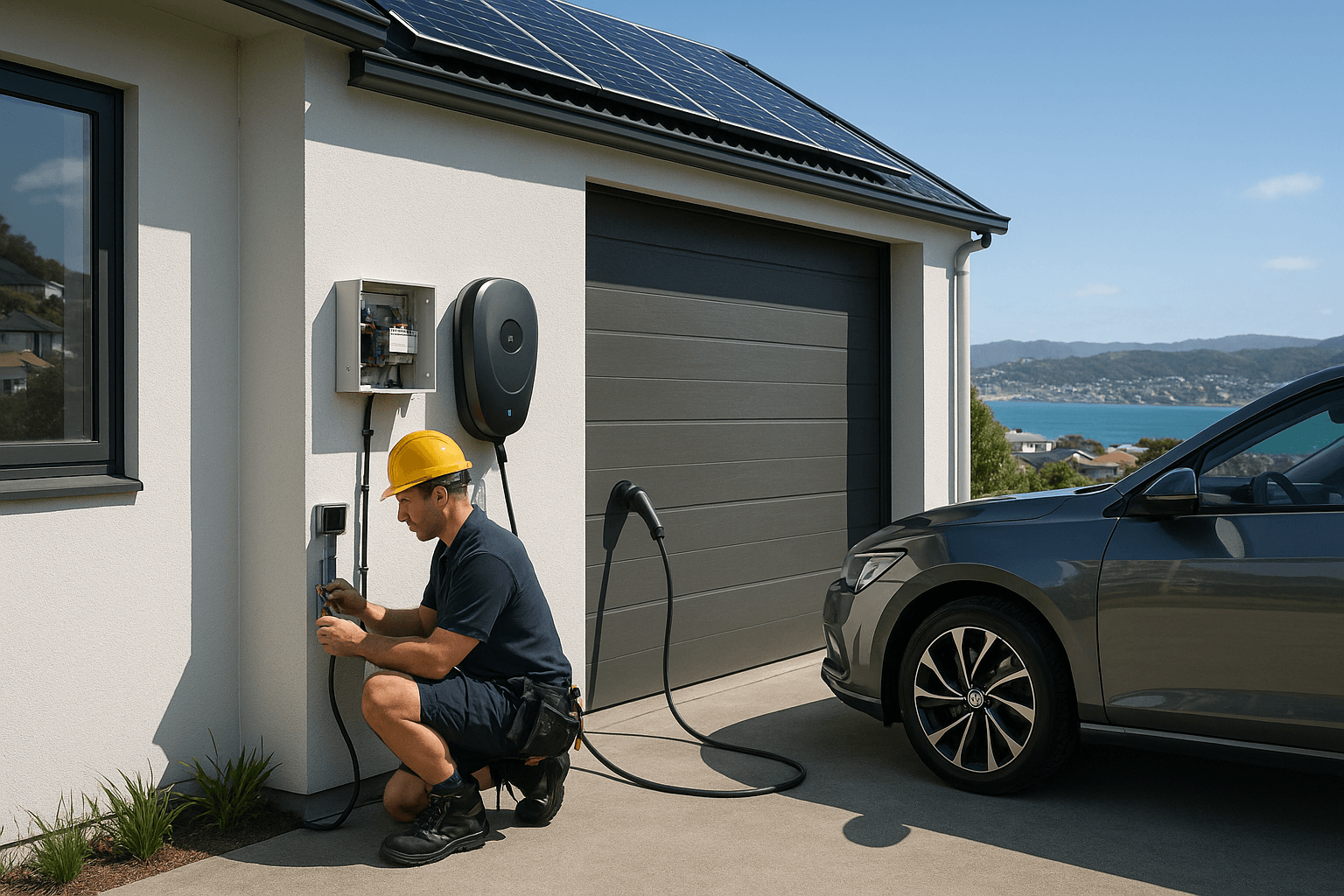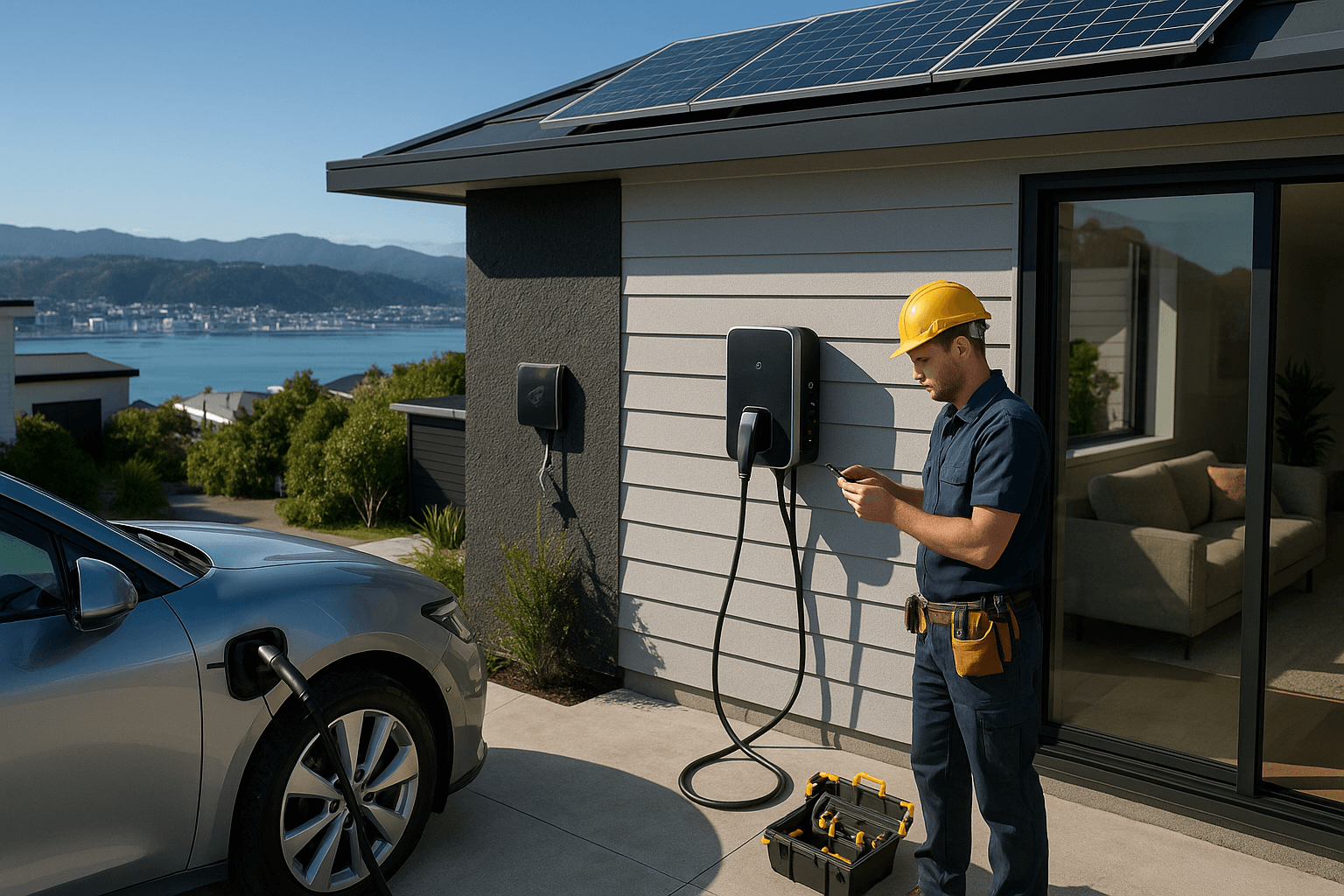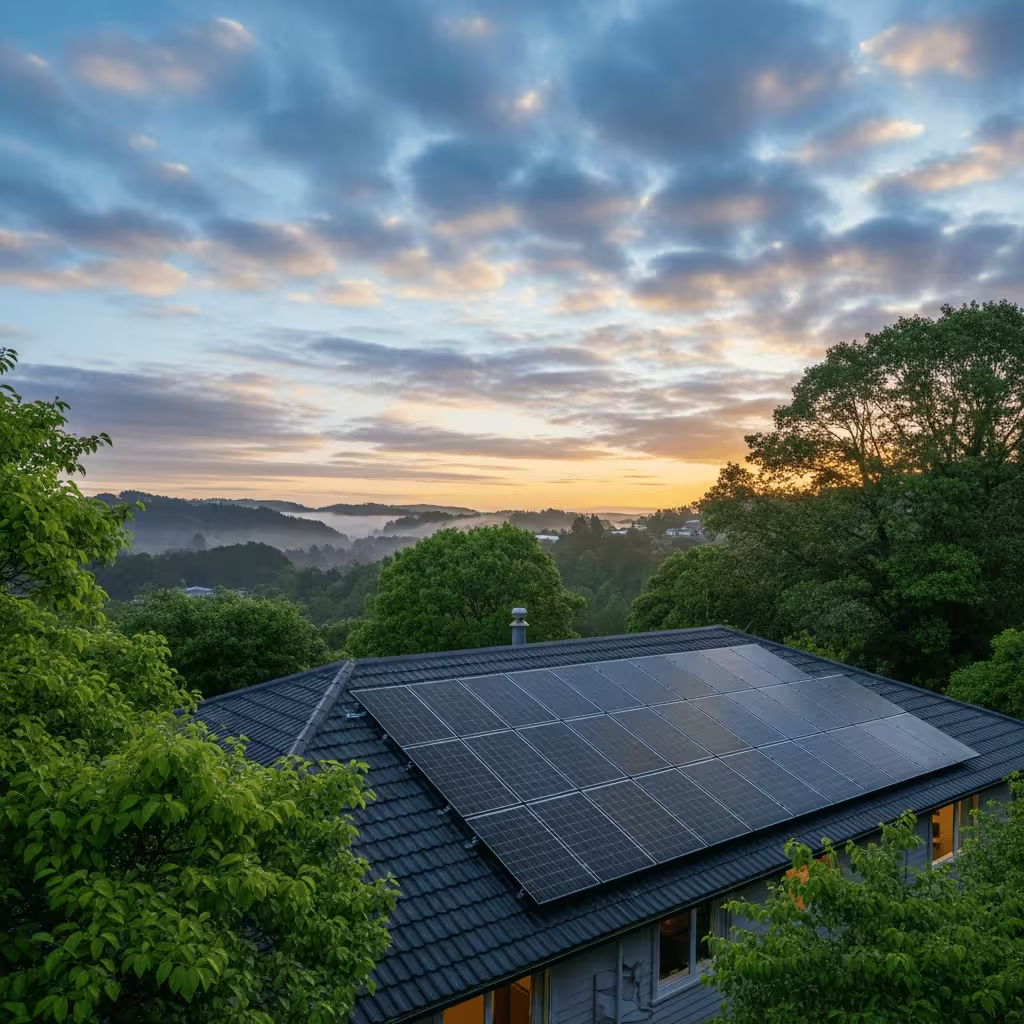The future of residential EV charging lies in integrating smart technology and renewable energy sources. As electric vehicles become more prevalent, homes in Wellington will rely on advanced solutions to meet the growing demand for sustainable energy.
- Introduction
- Cutting-edge Charging Technologies
- The Impact of Energy Policies on Home Charging
- Why Choose Weka Electrical for Future Residential EV Charging Solutions
- Frequently Asked Questions
- What is the future of residential EV charging?
- How do smart home charging systems work?
- Are there bi-directional charging options available for homes?
- How does wireless EV charging work?
- What are the benefits of integrating renewable energy with EV charging?
- How do energy policies influence home EV charging options?
- Is it feasible to set up a home solar charging station in Wellington?
- How can I make my EV home charging more sustainable?
The increasing adoption of electric vehicles (EVs) is driving significant changes in the way we approach energy consumption at home. The future residential EV charging landscape promises to revolutionize home energy systems by integrating smart technology and renewable energy sources to meet rising electric demands efficiently. Weka Electrical, based in Wellington, New Zealand, stands at the forefront of this exciting transition, providing cutting-edge solutions to homeowners eager to upgrade their charging capabilities.
Integration of Smart Technology
Smart technology is central to the evolution of future residential EV charging systems. Features such as demand-based charging, energy consumption management, and remote control capabilities are becoming increasingly sought after. These systems allow users to optimise their electric vehicle charging activities, reducing energy costs and managing loads during peak and off-peak periods.
Incorporating Renewable Energy
As sustainability remains a top priority, the integration of renewable energy sources, such as solar panels, into residential EV charging solutions is becoming more common. This approach not only reduces reliance on the grid but also supports greener energy consumption. Homeowners are thus empowered to move towards a more sustainable lifestyle by maximizing the use of clean energy.
Weka Electrical’s wide range of services ensures that Wellington homeowners have access to the latest in smart and sustainable home charging solutions tailored to their specific needs. By adopting future-ready technologies now, residents and electricians alike can contribute to reducing carbon footprints while enjoying the benefits of efficient and cost-effective energy use.

Cutting-edge Charging Technologies
The future of residential EV charging hinges on the rapid technological advancements redefining the landscape of home energy management. As electric vehicles (EVs) become a mainstay in Wellington, New Zealand, driven by both environmental consciousness and legislative efforts, the need for efficient and innovative home charging solutions has never been more pressing. This section delves into the forefront of these cutting-edge technologies, examining how they improve efficiency, convenience, and sustainability in the daily lives of EV owners.
Smart Charging Systems
Smart charging systems are transforming the way residential EV charging operates by integrating digital intelligence into the process. These systems allow homeowners to schedule charging times during off-peak hours, reducing electricity costs and lessening the load on the grid. Moreover, many of these smart systems come with apps that offer real-time insights into energy consumption patterns, enabling smarter and more economical energy usage. This technology not only aligns with many sustainable energy goals but also sets the stage for future innovations that could streamline the way we power our vehicles and homes.
Bi-directional Charging
Bi-directional charging, also known as vehicle-to-grid (V2G) technology, is an emerging trend that promises to revolutionise residential charging dynamics. It allows EVs to send electricity back to the grid or to a home’s electrical system, effectively turning the vehicle into a mobile power source. During peak times, households can use stored energy from their EVs, thereby reducing reliance on the grid and lowering electricity bills. As the technology matures, it will likely become an integral part of energy management strategies, especially in areas prone to power outages or with a high level of renewable energy integration.
Wireless Charging Technology
Another promising advancement in residential EV charging is wireless charging technology, which offers a hassle-free alternative to traditional plug-in methods. By installing induction pads in garages or driveways, homeowners can charge their EVs simply by parking over these pads, which transfer energy without the need for cables. While still in the early stages, wireless charging is expected to enhance convenience and user experience significantly, eliminating wear and tear on charging ports and making home charging as seamless as possible.
Integration with Renewable Energy
The integration of renewable energy sources, such as solar panels, with residential EV charging systems is a trend gaining momentum. By leveraging solar energy, homeowners in Wellington can charge their EVs with green energy, thereby reducing their carbon footprint and increasing energy independence. Many systems now offer the option to automatically prioritise renewable energy use, further enhancing their appeal to environmentally conscious consumers. This synergy between residential charging and renewable sources exemplifies the direction in which modern home charging solutions are headed.

The Impact of Energy Policies on Home Charging
As electric vehicles (EVs) become a staple of modern transportation, the importance of practical and sustainable residential charging solutions cannot be understated. Understanding how energy policies influence these solutions can provide homeowners with significant advantages, offering insights into cost savings, environmental benefits, and infrastructural support. Here, we delve into the specifics of how these policies are shaping the landscape of residential EV charging.
Government Initiatives and Incentives
Government policies extensively impact how residential EV charging solutions are implemented and evolve. Many countries, including New Zealand, envision a sustainable future by providing incentives for EV adoption, which extends to charging infrastructure. Consumer rebates, tax credits, and grants for installing home chargers not only make it financially viable but also encourage widespread adoption. These incentives are instrumental in nurturing a favourable environment for more sophisticated systems like smart chargers, which can optimize energy use by charging during off-peak hours or when renewable energy is abundant.
Grid Modernization and Its Effects
Another significant component is the modernization of electricity grids. As home charging becomes more prevalent, grid infrastructure must adapt to manage the increased demand effectively. Policies that support grid enhancements, such as upgrading transmission systems and integrating advanced smart grid technologies, play a crucial role. These system upgrades ensure that homes can handle higher energy loads without compromising efficiency, encouraging the adoption of innovative charging technologies that align with future residential EV charging trends.
Renewable Energy Integration
Integrating renewable energy sources into home charging systems is not only beneficial for the environment but also aligned with governmental policies associated with lowering carbon footprints. Policies advocating for solar panel incentives, net metering, and energy storage solutions make it feasible and attractive for homeowners. Buildings designed to harness these benefits can be seen as forerunners in the evolution of EV infrastructure, paving the way for self-sustaining energy solutions. This integration underlines the synergy between technological advancements and eco-friendly policy frameworks.
Understanding the intersection of energy policies and home charging technologies is pivotal in navigating towards a more sustainable and efficient future. As governments continue to implement forward-thinking policies, homeowners stand to gain significantly in terms of cost, convenience, and environmental impact.
Transitioning into the next section, we will explore why Weka Electrical is the go-to choice for implementing cutting-edge residential EV charging solutions, especially within the dynamic landscape of Wellington’s energy sector.
Why Choose Weka Electrical for Future Residential EV Charging Solutions
As the world continues to transition to renewable energy, the team at Weka Electrical emerges as an exemplary choice for setting up future-forward residential EV charging solutions in Wellington. Their deep-rooted expertise in the electrical industry, combined with a keen understanding of the dynamic energy landscape, ensures they remain ahead in delivering innovative and reliable solutions.
Experienced Local Experts
Based in the heart of Wellington, Weka Electrical stands out for its extensive local expertise, adeptly navigating the specific electrical regulations and energy policies of New Zealand. This local knowledge, combined with a commitment to continuous professional development, means their electricians are not only familiar with the best practices globally but tailor solutions that are locally compliant and efficient. For residents seeking an electrician in Wellington, Weka Electrical offers both seasoned proficiency and dependable service.
What Sets Us Apart
Weka Electrical distinguishes itself with its strong focus on client satisfaction and innovative solutions. They prioritize cutting-edge technology, offering advanced EV charging installations that seamlessly integrate with smart home systems and renewable energy sources. This ensures clients receive holistic and future-proof charging solutions. Furthermore, their dedication to customer service is noteworthy; they maintain open lines of communication throughout a project, ensuring client needs and preferences are central to the solution delivered.
Trust is another cornerstone of Weka Electrical’s reputation. Their consistent delivery of high-quality service has garnered them positive client feedback and referrals, evidenced by their glowing reviews. Prospective clients can expect transparency, integrity, and professionalism in every interaction, solidifying their standing as the go-to choice for EV charging needs.
Check Out Our EV Charging Installation Page
In the next section, we delve into some of the most frequently asked questions surrounding future residential EV charging solutions to further elucidate this evolving field.
Frequently Asked Questions
What is the future of residential EV charging?
The future of residential EV charging is set to be more efficient and sustainable, featuring smart technology and renewable energy integration to optimise energy use and cost-effectiveness.
How do smart home charging systems work?
Smart home charging systems use connectivity to manage and schedule charging, often taking advantage of off-peak times or renewable energy sources to save on energy costs and reduce environmental impact.
Are there bi-directional charging options available for homes?
Yes, bi-directional charging options allow homeowners to not only charge their electric vehicles but also use the stored energy in their vehicle batteries to power their homes, providing additional energy security and grid support.
How does wireless EV charging work?
Wireless EV charging works through electromagnetic fields to transfer energy between a transmitting pad on the ground and a receiving pad in the EV, offering convenience without the need for cables.
What are the benefits of integrating renewable energy with EV charging?
Integrating renewable energy with EV charging reduces dependence on fossil fuels, lowers electricity costs, and diminishes the environmental footprint of electric vehicles by utilising cleaner energy sources.
How do energy policies influence home EV charging options?
Energy policies can shape home EV charging by providing incentives for installations, promoting renewable energy sources, and guiding infrastructure developments that support modern charging solutions.
Is it feasible to set up a home solar charging station in Wellington?
Setting up a home solar charging station in Wellington is feasible and can be economically beneficial in the long run, owing to the region’s support for renewable energy and available technology for solar installations.
How can I make my EV home charging more sustainable?
To make your EV home charging more sustainable, consider installing solar panels, using energy-efficient chargers, and scheduling charging during off-peak hours to utilise cleaner energy sources.














